Medical coding and billing are two of the most important things that a practice can do to make money in the healthcare business. These steps ensure that healthcare providers get paid for the services they provide and that the money keeps coming in. Healthcare providers could lose money if they don’t use correct coding and good billing practices. In this article, we’ll talk about why medical coding and billing are important, how they are different, what problems they often run into, and the benefits of hiring someone else to do them.
What is the Process of Medical Coding?
Medical coding is the process of turning diagnoses, procedures, services, and equipment used in healthcare into universal alphanumeric codes. Insurance companies, healthcare providers, and government programs use these codes to bill, receive payments, and create statistics.
The Systems for Coding
There are a lot of coding systems that are used in healthcare, such as:
- ICD-10 (International Classification of Diseases): Used to talk about diagnoses and why people go to the doctor.
- CPT (Current Procedural Terminology): This is a way to talk about medical, surgical, and diagnostic procedures.
- HCPCS (Healthcare Common Procedure Coding System): This system reports services, supplies, and procedures not covered by CPT codes.
If healthcare providers don’t code their medical records correctly, they could have problems with insurance claims, late payments, and following the rules. Accurate medical coding helps make sure that you get paid correctly and makes the whole practice run more smoothly.
What Medical Billing Does
Medical billing is the process of sending claims to insurance companies and getting paid for services provided by healthcare providers. The point of medical billing is to make sure that healthcare providers get paid on time for the services they provide.
The Process of Billing
There are a few important steps in the medical billing process:
- Patient Registration: Getting the patient’s information and insurance information before they get treatment.
- Charge Entry: Writing down all the medical services provided and then translating them into the right codes (through medical coding).
- Submitting a Claim: Claims are sent to insurance companies with the right codes.
- Posting Payments: Payments from patients or insurers are put on accounts.
- Denial Management: Medical billers fix problems and send in claims again if they are denied.
- Follow-Up: Making sure that all unpaid claims are followed up on and settled so that payment is made on time.
Why Medical Billing Matters: Gross Collections vs. Net Collections
Medical coding turns medical services into codes, while medical billing ensures that healthcare providers receive the right amount for those services. The Net Collection Rate is an important number in medical billing. It shows how much a practice collects after payer adjustments, write-offs, and denials.
Gross Collections vs. Net Collections
- Gross Collections: This is the full amount charged before any changes, denials, or write-offs occur.
- Net Collections: This is the total amount collected after all write-offs, adjustments, and denials have been made. It gives a better picture of how healthy a practice’s finances are.
Medical billing is very important for keeping a high net collection rate, which shows how well a practice is turning its charges into real income.
Common Problems with Medical Coding and Billing
Healthcare providers must deal with a number of problems that come with medical coding and billing, even though they are important for keeping a practice’s revenue cycle going.
1. A Lot of Denials
One of the biggest problems with medical billing is that so many claims are denied. When claims are denied, money is lost, and the process of appealing and resubmitting them can take a long time. Coding mistakes, wrong patient information, or not following payer-specific rules are some of the most common reasons for denials.
2. Filing on Time
There are strict deadlines for filing claims with insurance companies. Not meeting these deadlines, even by a day, could mean losing money. Practices must make sure that all claims are filed on time so they don’t miss out on payments.
3. Wrong Documentation
Errors in coding and claim denials can happen if medical records are not complete or correct. To make sure that the right codes are used and that the claims are correct, complete, and meet medical necessity requirements, you need to keep good records.
4. Collecting Money from Patients
Getting payments directly from patients is often harder than getting payments from insurance companies. A lot of patients don’t pay their co-pays or outstanding balances, which can have a big effect on a practice’s income.
5. Posting Payments in an Inefficient Way
Payments that are posted incorrectly can make a practice’s finances look worse than they are and stop them from properly following up on unpaid claims. To keep accurate financial records, it’s important to post payments on time and correctly.
6. Too Many Write-Offs
Some write-offs the payer agrees upon, but others occur due to mistakes that could have been avoided, like missing authorizations or coding errors.. Too many write-offs can hurt a practice’s net collections rate.
The Benefits of Outsourcing Medical Coding and Billing
Many small to medium-sized healthcare providers should think about hiring someone else to do their medical coding and billing. There are many benefits to outsourcing these tasks that can help the practice run more smoothly, make more money, and be healthier overall.
1. Cost-Effectiveness
It can be much cheaper to hire an outside company to do medical coding and billing than to hire an in-house team. Practices save money on salaries, training, and other costs that come with having an in-house billing department.
2. Knowledge and Precision
Outsourcing lets healthcare providers work with experts in coding, billing, and managing the revenue cycle. These professionals make sure that coding is correct, claims are sent in on time, and denials are handled properly. This cuts down on mistakes and speeds up the flow of money.
3. Put the Patient First
Medical staff can spend more time caring for patients and less time on administrative tasks by outsourcing billing. This helps healthcare providers give their patients better care and makes the practice as a whole a better place to go.
4. Better Cash Flow
Medical billing services make sure that healthcare providers follow rules like HIPAA, coding guidelines, and rules that are specific to each payer. This lowers the chance of being fined or audited.
How to Pick the Best Medical Coding and Billing Service
Choosing the right medical coding and billing service is very important for the success of your practice. Here are some things to think about:
1. Knowledge and Experience
Pick a service provider who has worked in your field before (for example, primary care, oncology, or radiology). Specialized knowledge makes sure that the coding and billing process meets the needs of your field.
2. Prices That Are Clear
Find a medical billing service that is honest about its prices and makes them clear. Make sure there are no extra fees, whether they charge a flat rate or a percentage of collections.
3. Customer Service
Customer service that responds quickly is very important. You should work with a provider who can quickly fix problems, answer your questions, and help you with billing issues as they come up.
4. Following HIPAA
To protect patient data and stop breaches, make sure that the service provider follows HIPAA and other healthcare rules.
Final Thoughts
For healthcare providers to keep their revenue cycle healthy, medical coding and billing are very important. Medical billing ensures that providers receive payment for their services, while medical coding converts diagnoses and procedures into standard codes.
By outsourcing medical coding and billing services, small practices can save money, get more cash flow, and run their businesses more efficiently. Healthcare providers can increase their revenue and ensure payment for the services they provide by focusing on accurate coding and effective billing.
If your practice has trouble with billing errors or high denial rates, it might be time to think about hiring professionals to handle your medical coding and billing. They can help make the process more efficient and increase your income.


